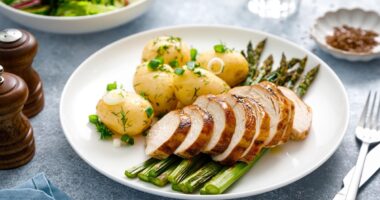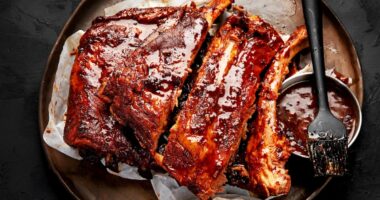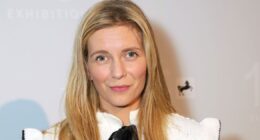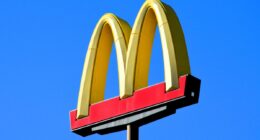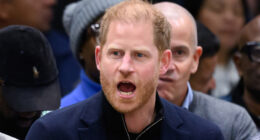Everything you do when it comes to eating and exercising matters greatly when you’re trying to lose weight. It’s important to be consistent with a healthy routine, and change doesn’t happen overnight. Fear not, because with some solid habits in place, you can reach the number on the scale and the overall look you want to achieve. We spoke with Dr. Mike Bohl, the Director of Medical Content & Education at Ro and a certified personal trainer, and are here for the win. We have all the information you need to help reach your weight loss goal effectively, including the best time to eat after a workout.
Get ready to sharpen your daily routine, because this is happening now! And next up, don’t miss The 6 Best Exercises for Strong and Toned Arms in 2022, Trainer Says.
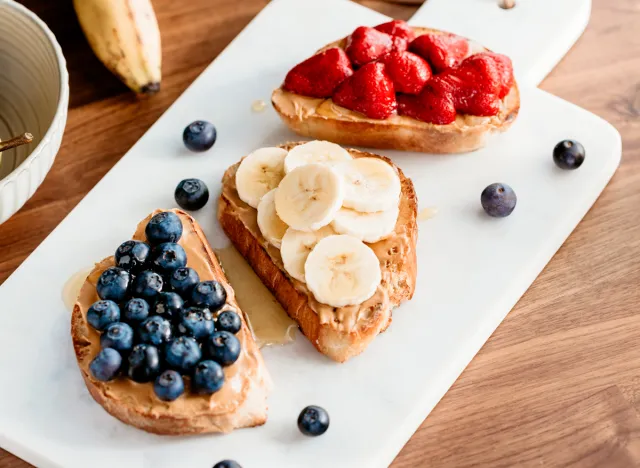

First off, Dr. Bohl explains that when your focus is to shed a few pounds, it’s important to make sure you’re consuming just the right foods. For example, many dieters think they should stay away from carbohydrates and choose to eat protein. On the contrary, it’s essential to have carbohydrates just after a workout.
The reason is that when you work out, you deplete yourself of glycogen, which is the glucose that’s stored in your muscles and liver. Following a workout, your body works to build and repair muscle and replace your storage of glycogen. If after a workout you only consume protein, your body will have to use the protein to replenish the glycogen. If you eat carbohydrates, they will break down into glucose and restock your glycogen stores. Then, the protein you consume will be used more efficiently to repair and synthesize muscle instead of being metabolized to fuel your body with energy.
Related: The #1 Workout for an Hourglass Figure, Trainer Says
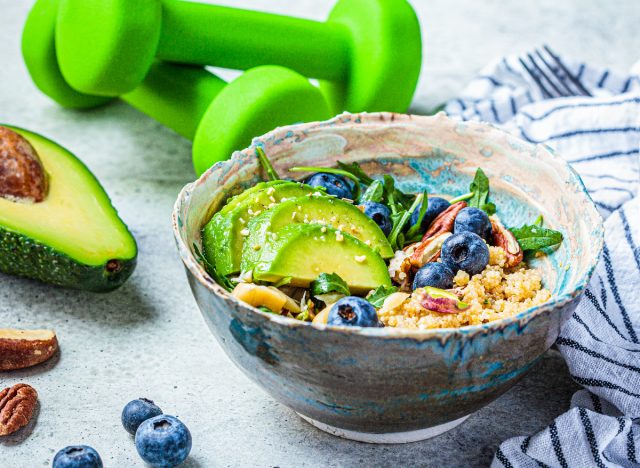

Now that you understand what you should eat, let’s chat about when you should eat it. The best time to eat after a workout in order to achieve weight loss is within the first half hour after you’re done exercising. That being said, keep in mind that weight loss really has to do with the amount you eat more than when you eat it.
READ RELATED: 5 Best Vegetables To Eat After 50, Says Dietitian
Dr. Bohl tells us, “It’s all about the total amount of calories you eat throughout the day. If you are eating more calories than you burn—no matter what time of day you eat them—you will gain weight. If you are eating fewer calories than you burn—no matter what time of day you eat them—you will lose weight.” Of course, there are rules to keep in mind.
Related: The #1 Outdoor Workout To Lose Belly Fat in a Week, Says Trainer
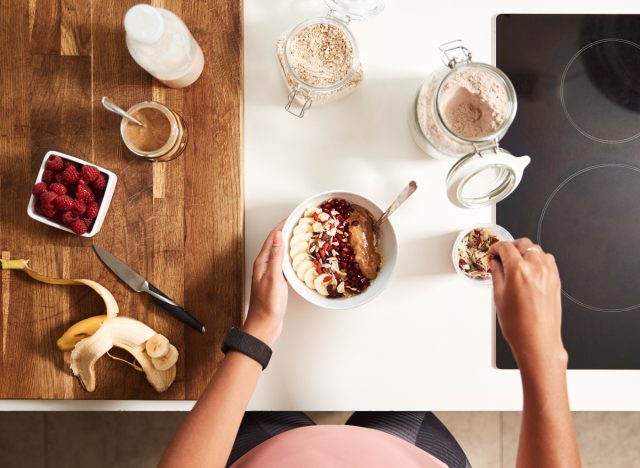

Be certain to consume enough carbs just before you exercise to ensure they give you enough energy for a solid workout and you have the right amount of carbs post-workout to assist in your recovery. Also, the best choice to eat is a combination of carbohydrates and protein. (Remember what we explained earlier—carbohydrates will replenish all of the stored energy that you spent during the workout, and protein will be used for muscle synthesis and repair).
Your weight goals should be the determining factor of the number of calories you consume. As previously mentioned, since you’re trying to lose weight, it’s necessary to eat fewer calories than you burn throughout the day. Dr. Bohl tells us, “According to the National Academy of Sports Medicine, for effective weight loss, people with obesity who are trying to lose weight should burn at least 200–300 calories per exercise session (and at least 1,200 calories per week) through exercise. It takes a calorie deficit of approximately 3,500 calories to lose approximately 1 pound of body fat.”


For more mind and body news, be sure to check out This 10-Minute Visceral Fat Reducer Is What Your Belly Needs at 50, Trainer Says and 5 Simple Hobbies To Help You Lead an Incredibly Healthy Lifestyle next to stay on top of the latest fitness and wellness scoop.
Alexa Mellardo
Source:




